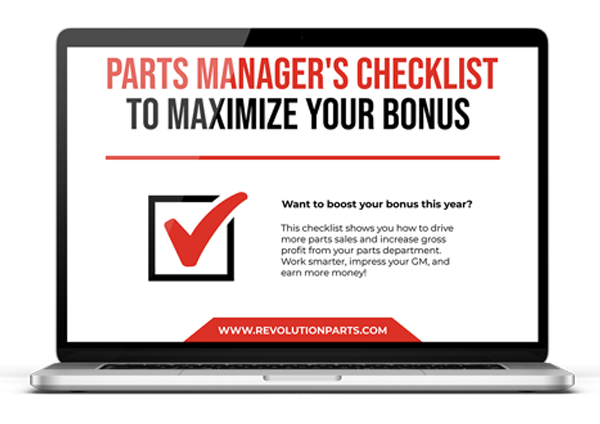The specialty automotive industry has experienced significant growth and change, driven mainly by the shift toward eCommerce and digital marketing. With the rise of online sales channels, specialty automotive parts manufacturers and retailers have more opportunities than ever to reach new customers and grow their businesses. In this blog, we’ll delve into the current trends and opportunities in the specialty automotive parts industry and discuss strategies to help you thrive in the digital landscape.
#1 The Rise of eCommerce
eCommerce has revolutionized the way people shop for specialty automotive parts and accessories. As more consumers turn to the Internet for their shopping needs, the online specialty automotive parts industry has experienced substantial growth. In fact, according to Contrive Datum Insights, the global automotive eCommerce market is projected to reach $213B by 2030, exhibiting a CAGR of 16% during this period.
This trend presents a massive opportunity for specialty automotive parts manufacturers and retailers. By establishing a strong online presence and adopting a robust eCommerce platform like RevolutionParts, businesses can tap into new revenue streams, reach a broader customer base, and build brand recognition. They are also able to leverage their distribution network to fulfill demand and provide a more ‘Amazon-like’ experience, all while retaining ownership of consumer data–a battle for many parts manufacturers today.
#2 The Power of Omnichannel Selling
In the world of eCommerce, selling through multiple channels is crucial for success. An omnichannel approach allows businesses to reach customers wherever they are—whether on their own eCommerce website or popular online marketplaces like Amazon and eBay.
Specialty automotive parts manufacturers and retailers can maximize their visibility, drive sales, and improve the customer experience by adopting an omnichannel selling strategy. Some key benefits of omnichannel selling include:
- Increased brand exposure
- Access to a broader audience
- Enhanced customer engagement
- Improved inventory management
Diversifying your sales through multiple channels is a good way to access a larger customer base; it is crucial to remember that your website should be the ultimate source for buyers and your main focus. This will allow you to retain consumer data, as an unfortunate trade-off for selling on marketplaces is losing that consumer data. Because of this trade-off, selling through marketplaces should be a secondary source of revenue.
#3 The Importance of Mobile Optimization
As more consumers use their mobile devices to shop online, optimizing your website and marketing efforts for mobile is essential. According to a study by Statista, mobile eCommerce sales are projected to reach $400B by 2024. Right now, more than half of sales from parts sellers using RevolutionParts come from mobile devices, highlighting how crucial a mobile-friendly website is.
To ensure a seamless mobile shopping experience, specialty automotive parts businesses should focus on the following:
- Responsive website design
- Fast page load times
- Easy navigation
- Streamlined checkout process
- Mobile-friendly marketing campaigns
#4 The Shift Toward Personalization
In the age of information overload, personalization has become a powerful way for businesses to cut through the noise and connect with their audience. By tailoring your marketing efforts to your customers’ individual needs and preferences, you can boost engagement, drive sales, and foster brand loyalty.
Some personalization strategies for the specialty automotive parts industry include:
- Segmenting your email list to target specific customer groups
- Using dynamic content on your website to show relevant products and offers
- Leveraging customer data to create tailored marketing campaigns
- Offering personalized product recommendations based on browsing and purchase history
#5 The Growing Influence of Social Media
Social media platforms like Facebook, Instagram, and Pinterest have become essential tools for specialty automotive parts businesses to reach and engage with their customers. With over 3.6 billion people using social media worldwide, it’s a powerful channel to showcase your products, share valuable content, and connect with your audience.
To make the most of social media, specialty automotive parts businesses should:
- Develop a consistent posting schedule
- Share a mix of promotional and educational content
- Use high-quality visuals and engaging captions
- Leverage hashtags to increase visibility
- Collaborate with influencers in the automotive space
#6 The Integration of Artificial Intelligence and Machine Learning
Artificial intelligence (AI) and machine learning are transforming the eCommerce landscape, offering new tools and insights to help businesses optimize their operations and marketing efforts. In the specialty automotive parts industry, AI can be used to improve product recommendations, enhance customer support, and automate marketing tasks.
Some ways specialty automotive parts businesses can leverage AI and machine learning include:
- Using chatbots to assist customers with inquiries and support
- Implementing AI-powered product recommendation engines
- Automating email marketing campaigns with machine learning algorithms
- Utilizing AI-driven analytics to identify trends and optimize marketing strategies
#7 The Expansion of Dropshipping and Direct-to-Consumer Models
Dropshipping and direct-to-consumer (D2C) models have gained popularity in the specialty automotive industry, allowing businesses to streamline operations and reduce overhead costs. By partnering with suppliers who handle inventory management, order fulfillment, and shipping, businesses can focus on marketing and customer service.
To successfully implement a dropshipping or D2C model, specialty automotive parts businesses should:
- Choose reliable suppliers with high-quality products
- Implement a robust order management system
- Focus on building strong relationships with suppliers
- Offer excellent customer service to build trust and loyalty
Conclusion
The specialty automotive parts industry is evolving rapidly, with digital trends and opportunities presenting new ways for businesses to connect with customers and drive sales. By staying informed and adapting to these changes, specialty automotive parts manufacturers and retailers can position themselves for success in the competitive online landscape.
To thrive in this dynamic environment, focus on your need to leverage eCommerce, adopt omnichannel selling strategies, optimize for mobile, personalize your marketing efforts, and utilize the latest technology trends, such as voice commerce. Consider leveraging your own distribution network to streamline fulfillment or embracing direct-to-consumer models so that you can retain your own consumer data. Your parts business can flourish in the digital age by staying agile and responsive to change.
If you are a specialty automotive parts manufacturer ready to grow your business, click the button below to contact us and learn more about RevolutionParts.




